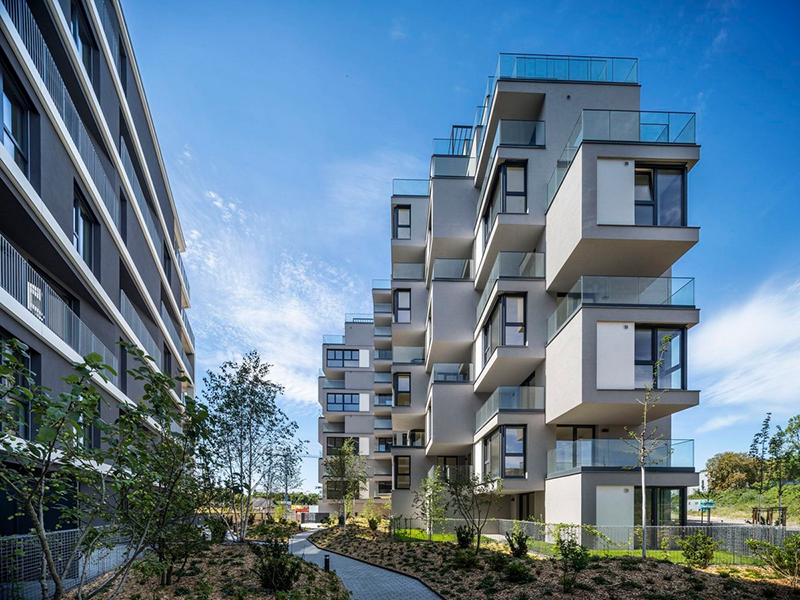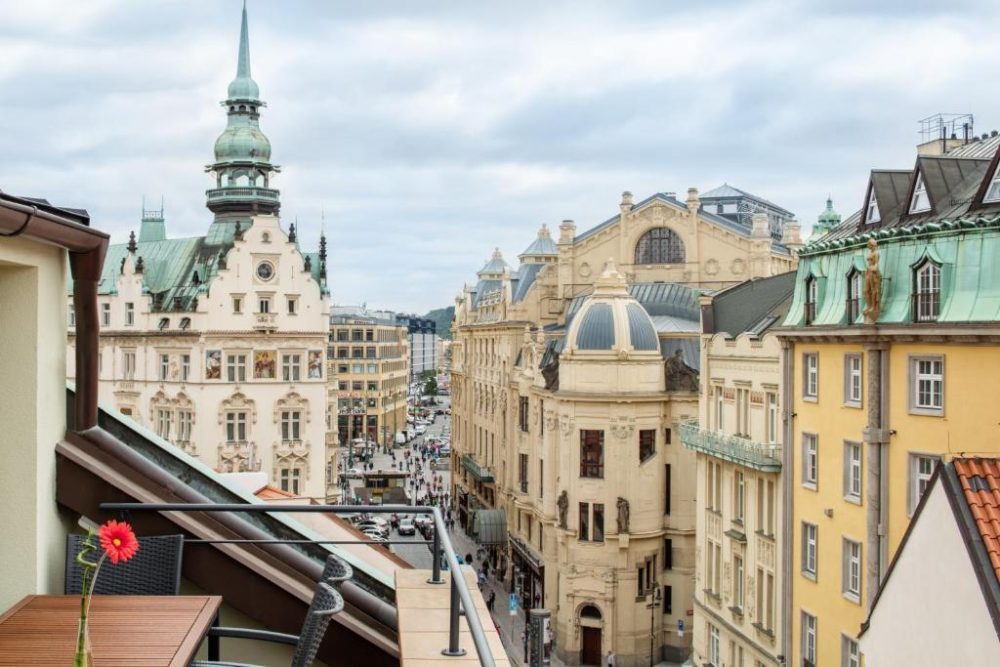Czech property is becoming increasingly popular, and this is not just a trend. The variety of options, market stability and attractive conditions for investors make the Czech Republic one of the most favourable countries to buy a home. What pitfalls can arise in the selection process? What is important to consider if you decide to buy a flat in the Czech Republic, and how to avoid unpleasant surprises?

The process of buying a flat in the Czech Republic: what you should pay attention to
When it comes to property, especially in another country, it is important to realise that every step must be carefully considered. Buying a flat in the Czech Republic is not that difficult if you know what to look out for and what points can be key in the process.
First of all, it is important to clarify: there are certain rules in the Czech Republic that limit the rights of foreign citizens to purchase property. It is important to remember that:
- Foreigners can usually buy a flat in the Czech Republic, but there are a few legal nuances to consider.
- The main point to pay attention to is property registration in the Czech Republic. As a rule, for non-citizens, the process may involve additional steps, such as a special permit to buy property in some regions.
Key milestones:
- Verification of property rights. Pay attention to the legal cleanliness of the object. Be sure to check whether the ownership of the flat is not disputed in court.
- Notary and the contract. To finalise the transaction, the assistance of a notary will be required to certify the signatures on the contract. Often it is also important to make sure that the contract of sale complies with all legal requirements of the country.
- Registration of the transaction in the Land Registry. After signing the contract and handing over the money, the purchase must be registered at the Land Registry. This is a formal process, but without it you will not become the legal owner.
It is important to consult a lawyer beforehand to avoid problems such as unseen legal or financial restrictions that can greatly affect the home buying process.
Why the Czech Republic: the advantages of investing in Czech property
 The Czech Republic is not just a beautiful place to live, but also a stable property market that attracts investors from all over the world. It is a safe investment that gives a real return, especially if you choose the right location.
The Czech Republic is not just a beautiful place to live, but also a stable property market that attracts investors from all over the world. It is a safe investment that gives a real return, especially if you choose the right location.
The property market here is growing steadily. For example, according to 2023 data, the cost of housing in Prague increased by 6% compared to the previous year. Features:
- Stability and growth: the Czech Republic has one of the most stable economies in Europe with a highly developed infrastructure and social sphere.
- Developing regions: it is not only the capital that attracts investors. Brno, the second largest city, is also showing a steady increase in housing prices. Here you can find attractive options for those looking for space for rent.
- Affordable prices: even in large cities such as Prague, prices for square metres remain lower than in other Western European capitals.
For those who are thinking about long-term investments, the decision to buy a flat in the Czech Republic is a favourable alternative. Unlike other European countries, here you can get a real rental income and ensure the stability of your investment.
Financial side: mortgage, taxes and expenses
As in any other country, mortgages in the Czech Republic have their own peculiarities. In order to understand whether it is worth investing in Czech properties, it is important to understand the financial aspects of the process:
- Mortgage: foreigners can get a mortgage loan to buy property in the Czech Republic, but they must make a higher down payment – up to 50%. The average mortgage rate varies from 3.5% to 5% per annum depending on the term of the loan and the type of bank.
- Property tax in the Czech Republic: is 0.75% of the cadastral value of the property, but this percentage may vary from region to region. In Prague it may be slightly higher.
Additional Costs:
- Notary fees: formalising a transaction through a notary in the Czech Republic is a mandatory step. The fee ranges from CZK 3,000 to CZK 10,000, depending on the complexity of the agreement.
- Fee for registration in the Land Registry: this service usually costs around CZK 1,000.
You should also consider home maintenance costs: utilities, taxes, and possible building or condominium management fees.
What documents you need to buy a flat in the Czech Republic
You need to prepare several documents that will help finalise the transaction and register the property with the land registry. Here is exactly what you will need:
- Passport (or other identity document).
- Proof of financial solvency: this could be a bank statement or other documents that prove your ability to pay for the property.
- Purchase and sale agreement: the main document that certifies the transaction. It is signed by both parties in the presence of a notary.
- Tax return (to confirm payment of taxes).
Every mistake can lead to legal consequences, so it is best to consult with experienced professionals in this field.
New buildings vs secondary market: what to choose?
Before you buy a flat in the Czech Republic, you need to decide whether it is better to choose a new building or a secondary market dwelling.
Advantages of New Buildings:
- Modern technology and finishes.
- Quality guarantee from the developer.
- Opportunity to choose a flat in newly developing neighbourhoods with excellent infrastructure.
Advantages of secondary housing:
- Well-established infrastructure.
- Old houses with atmosphere and history.
- Lower price compared to new flats.
Each option has its own characteristics. The choice depends on your goals and budget, as well as on what is more important – newness and modernity or cosiness and historical context. For example, if you want to enjoy the atmosphere of old Bohemia, a flat with a view of the historical centre would be an excellent choice. Prague is famous for its old neighbourhoods such as Stare Mesto or Malá Strana.

Conclusion
 Now that you know all the important aspects of buying property in the Czech Republic, from registration to financial details, all that remains is to decide in which neighbourhood to buy a flat and start a new phase of your life in this beautiful country. Don’t forget to consult experts and carefully check all stages of the purchase to avoid unnecessary risks.
Now that you know all the important aspects of buying property in the Czech Republic, from registration to financial details, all that remains is to decide in which neighbourhood to buy a flat and start a new phase of your life in this beautiful country. Don’t forget to consult experts and carefully check all stages of the purchase to avoid unnecessary risks.
 en
en  ru
ru  de
de  ar
ar  es
es  nl
nl  hi
hi  fr
fr  it
it  pt
pt  el
el 









